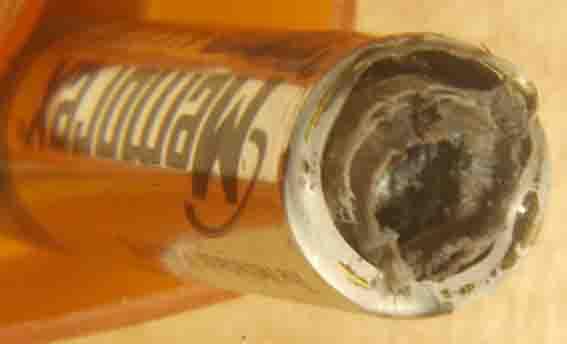- Joined
- 27 Jan 2008
- Messages
- 23,664
- Reaction score
- 2,666
- Location
- Llanfair Caereinion, Nr Welshpool
- Country

My wife proudly said how she had got a pair of 800mah for a pound compared with the 4 x 2500mah batteries I got for £2.98. But did I really get the better buy? Hers were ready charged and are claimed to hold charge for 1 year and mine had to go straight into the delta V charger.
Charge times is another question. Mine say 7 hours at 500ma hers say "Ready for use" with no requirement to charge before use. With my delta V charger not a problem one looks at the LED and when it goes from red to green they are charged. But with the older charger it was designed to take 16 hours and no indication as to when charged.
My Delta V rated at 250ma (Minwa Electronics Co Ltd) so although it takes 10 batteries looking at 12 hours for 2500mah rated. The smaller UniRoss X-Press 300 is rated at 320ma but it has an auto cut off after 9 hours. Likely will over charge 800mah batteries and under charge 2500mah batteries. My Philips (SCB5050NB) USB charger also 250ma so also 12 hours charge time. It does in the instructions give times for 2600mah, (12½), 2100mah (10), 1800mah (8hrs) and 1300mAh (6¼hrs) but nothing for Poundland 800mAh cells.
OK as an electrician I understand but how many "Normal" people will realise the difference between 2500mAh and 800mAh when they both fit same appliance and charger? I will continue to buy mine from Lidi at 2500mAh rating.
Charge times is another question. Mine say 7 hours at 500ma hers say "Ready for use" with no requirement to charge before use. With my delta V charger not a problem one looks at the LED and when it goes from red to green they are charged. But with the older charger it was designed to take 16 hours and no indication as to when charged.
My Delta V rated at 250ma (Minwa Electronics Co Ltd) so although it takes 10 batteries looking at 12 hours for 2500mah rated. The smaller UniRoss X-Press 300 is rated at 320ma but it has an auto cut off after 9 hours. Likely will over charge 800mah batteries and under charge 2500mah batteries. My Philips (SCB5050NB) USB charger also 250ma so also 12 hours charge time. It does in the instructions give times for 2600mah, (12½), 2100mah (10), 1800mah (8hrs) and 1300mAh (6¼hrs) but nothing for Poundland 800mAh cells.
OK as an electrician I understand but how many "Normal" people will realise the difference between 2500mAh and 800mAh when they both fit same appliance and charger? I will continue to buy mine from Lidi at 2500mAh rating.



